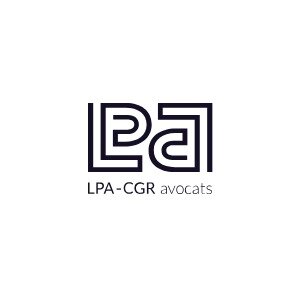Best Financial Services Regulation Lawyers in Morocco
Share your needs with us, get contacted by law firms.
Free. Takes 2 min.
Or refine your search by selecting a city:
List of the best lawyers in Morocco
About Financial Services Regulation Law in Morocco
Financial services regulation in Morocco is a critical aspect of the legal framework that governs the operations of financial institutions. It encompasses rules and guidelines concerning banking, securities, insurance, and other financial intermediaries. The aim is to promote stable and efficient financial systems, ensure consumer protection, and maintain the integrity of the financial markets. The Bank Al-Maghrib (the central bank of Morocco) and the Moroccan Capital Market Authority (AMMC) are among the primary regulatory bodies overseeing these financial operations.
Why You May Need a Lawyer
Engaging a lawyer specialized in financial services regulation can be crucial in various scenarios. You might consider obtaining legal advice if you are navigating regulatory compliance for a new financial product, handling disputes with customers or other financial entities, or facing challenges related to corporate governance. Additionally, if you're an individual investor or business subjected to financial penalties, audits, or investigations, a lawyer can offer vital assistance and representation.
Local Laws Overview
Key aspects of Moroccan financial services regulation include:
- Banking Law: Governs the licensing and operations of banks, including capital requirements and risk management.
- Securities Regulation: Oversees the issuance and trading of financial instruments, protecting investors and ensuring market transparency.
- Insurance Law: Regulates the activities of insurance companies, including solvency and consumer protection standards.
- Anti-Money Laundering (AML): Enforces measures to prevent the use of the financial system for money laundering and terrorism financing.
Frequently Asked Questions
What is the role of Bank Al-Maghrib in Morocco's financial regulation?
Bank Al-Maghrib acts as the central bank of Morocco, regulating monetary policy, supervising banks, and ensuring the stability of the national currency.
How does the Moroccan Capital Market Authority (AMMC) impact financial regulation?
The AMMC is responsible for regulating and monitoring the capital markets, protecting investors, and ensuring transparency and fairness in the securities sector.
Do financial institutions need a license to operate in Morocco?
Yes, financial institutions must obtain proper licensing from respective authorities, such as Bank Al-Maghrib or AMMC, before commencing operations in Morocco.
What consumer protection measures exist under Moroccan financial regulations?
Consumer protection laws are designed to safeguard clients from unfair practices, ensuring transparency in financial transactions and effective dispute resolution mechanisms.
Are foreign financial entities subject to the same regulations in Morocco?
Foreign entities must comply with Moroccan regulations when operating within the country, although some bilateral agreements may influence specific conditions.
How is anti-money laundering addressed in Morocco?
The AML regulations require financial entities to implement measures to detect and report suspicious activities, aligning with international standards to combat money laundering and terrorism financing.
What are the key compliance requirements for financial institutions in Morocco?
Institutions must adhere to capital adequacy standards, maintain accurate records, conduct regular audits, and implement risk management protocols.
Can investors seek legal recourse if they experience fraud in Moroccan financial markets?
Yes, investors have legal pathways to resolve complaints and pursue actions against fraudulent practices through regulatory bodies and the court system.
What are the penalties for non-compliance with financial regulations in Morocco?
Penalties may include fines, license suspension or revocation, and even imprisonment for severe violations. The exact measures depend on the nature and severity of the non-compliance.
How can technology firms operating in the fintech space ensure compliance?
Fintech companies must remain updated on regulatory developments and engage with regulators to ensure their innovations meet legal requirements, particularly in areas like digital payments and data protection.
Additional Resources
The following resources can be helpful for understanding Financial Services Regulation in Morocco:
- Bank Al-Maghrib: The central bank provides guidelines, reports, and updates on banking regulation.
- Moroccan Capital Market Authority (AMMC): Offers insights into capital market regulations and investor protection initiatives.
- Ministry of Economy and Finance: Enforces fiscal policies and economic regulations affecting financial markets.
- Professional Associations: Bodies such as the Professional Association of Moroccan Banks (GPBM) provide industry insights and support.
Next Steps
If you need legal assistance in navigating financial services regulation in Morocco, consider taking the following steps:
- Identify Your Needs: Clearly outline the specific issues or questions you have regarding financial regulations.
- Research Qualified Lawyers: Look for lawyers with expertise in financial services regulation, including their experience, reputation, and client reviews.
- Schedule Consultations: Meet with potential lawyers to discuss your case and understand their approach before deciding whom to hire.
- Gather Documentation: Compile all relevant documents and information that pertain to your legal matter to provide to your lawyer.
- Follow Legal Advice: Adhere to your legal counsel’s advice and keep abreast of any changes in the regulatory framework that might affect your situation.
Lawzana helps you find the best lawyers and law firms in Morocco through a curated and pre-screened list of qualified legal professionals. Our platform offers rankings and detailed profiles of attorneys and law firms, allowing you to compare based on practice areas, including Financial Services Regulation, experience, and client feedback.
Each profile includes a description of the firm's areas of practice, client reviews, team members and partners, year of establishment, spoken languages, office locations, contact information, social media presence, and any published articles or resources. Most firms on our platform speak English and are experienced in both local and international legal matters.
Get a quote from top-rated law firms in Morocco — quickly, securely, and without unnecessary hassle.
Disclaimer:
The information provided on this page is for general informational purposes only and does not constitute legal advice. While we strive to ensure the accuracy and relevance of the content, legal information may change over time, and interpretations of the law can vary. You should always consult with a qualified legal professional for advice specific to your situation.
We disclaim all liability for actions taken or not taken based on the content of this page. If you believe any information is incorrect or outdated, please contact us, and we will review and update it where appropriate.
Browse financial services regulation law firms by city in Morocco
Refine your search by selecting a city.

















